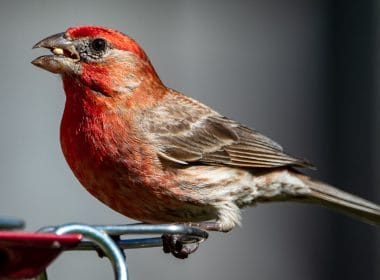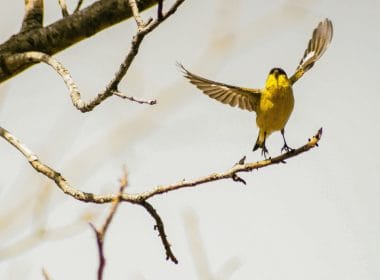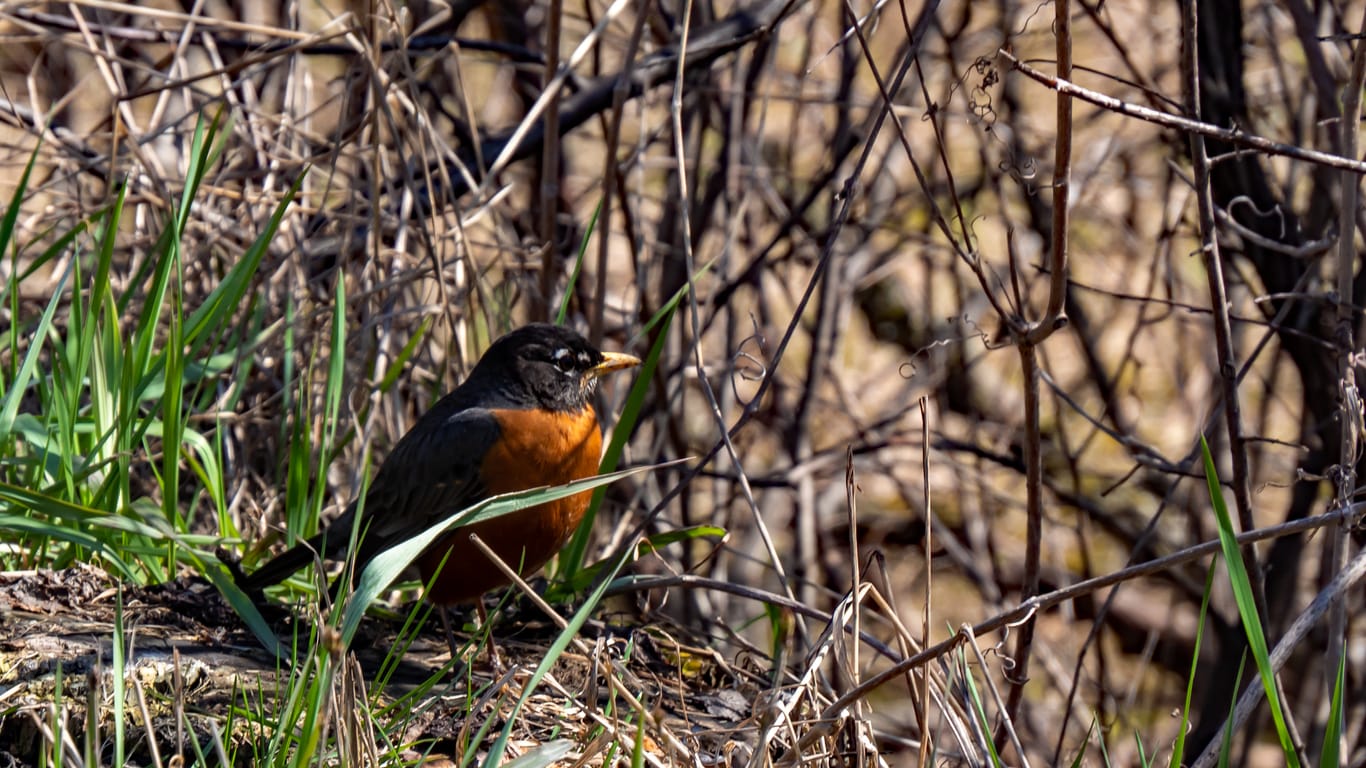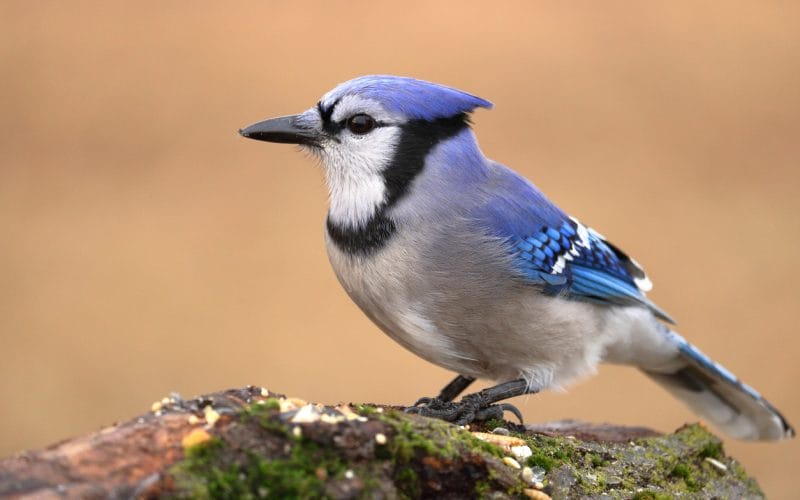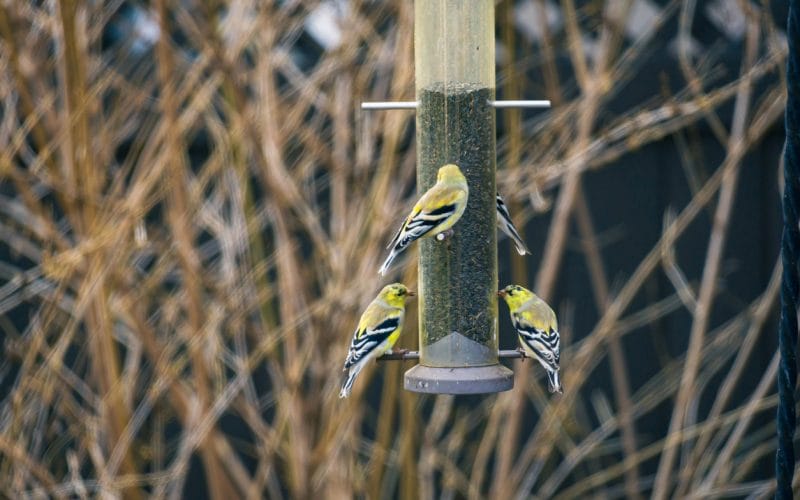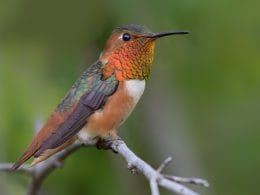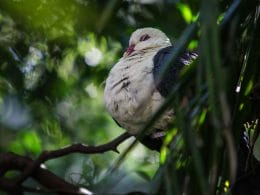American Robins are small, delightful birds that are commonly found in grasslands, woodlands, and even suburban backyards!
You might’ve seen one and wondered, “Does it have a place to sleep in?” The answer, in most cases, is yes. This begs another question, where do robins sleep?
The answer to the question tends to change based on the weather, but for the most part, robins sleep in enclosed places like shrubs or bushes.
When looking for a place to sleep, robins always prioritize protection from predators and warmth over anything else.
A common myth is that robins only sleep in their nests. That is not true at all! A robin can sleep in many locations, which is what we’ll get into in this article. Read on!
When Do Robins Sleep?
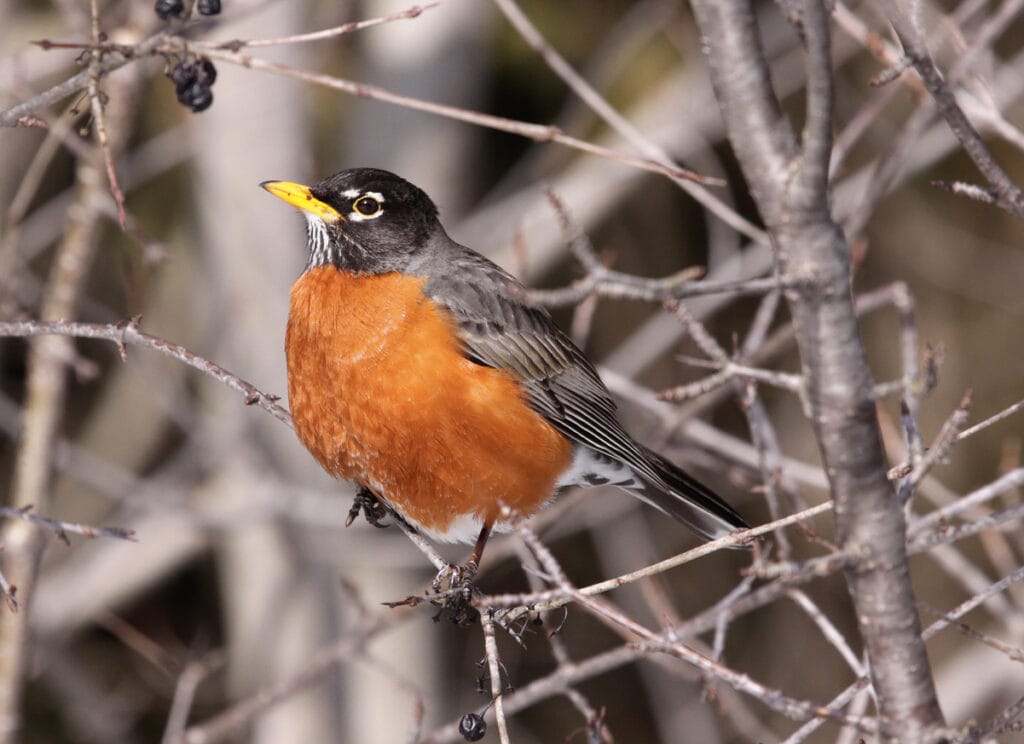
Robins are a diurnal type of bird. This means that they’re active throughout the day, carrying out different activities like hunting or nesting.
After dark, robins will start to settle in and rest to recharge till the morning. Right before the sun rises, robins will be up and back to performing their daily tasks.
Being diurnal makes robins vulnerable to nocturnal predators. This is why robins often sleep in hidden areas such as low branches of trees or dense bushes.
Such areas make the small and vulnerable robin feel safer since its predators are less likely to spot it there.
Another thing robins prioritize is finding a place that covers their scent seeing as most nocturnal animals have a keen sense of smell.
Woodlands and grasslands often cover a robin’s scent very well, which gives them a safe place to sleep at night.
Favorite Sleeping Spots for Robins
Now, let’s get down to all the possible spots in which you might spot a sleeping robin! You’ll be surprised to find out how many places a robin can sleep in.
1. Bushes and Hedges
Anything that requires twists or turns to enter creates a perfect place for a robin to sleep in. After all, robins have many predators that want to hunt them when they’re asleep.
Author Note: Bushes and hedges keep robins hidden so predators can’t spot them. Hedge banks are also an excellent sleeping spot for robins since they’re closer to the ground yet still safe.
2. Trees
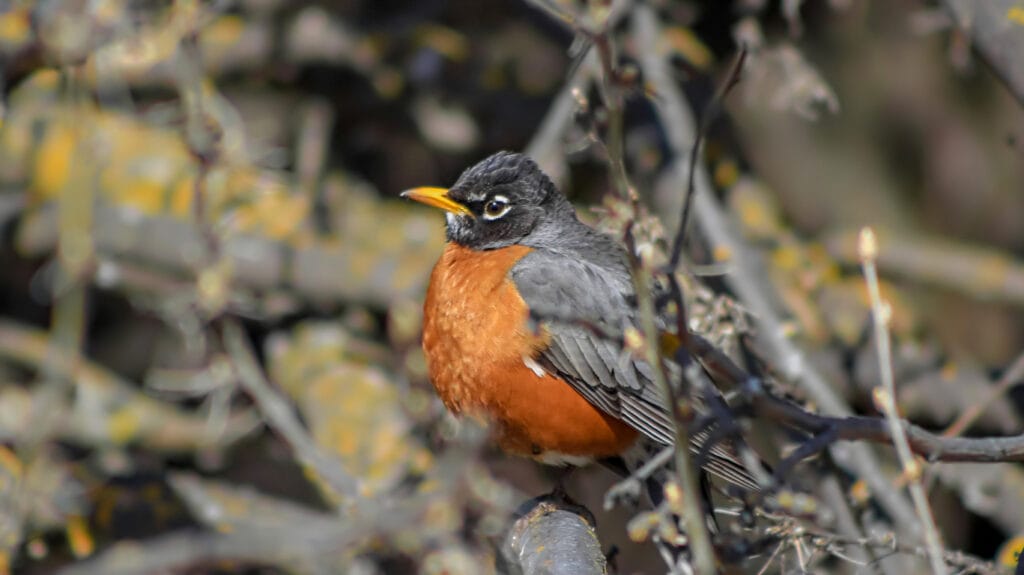
Robins can sleep in trees as most birds do. They tend to favor low-hanging branches seeing as they’re easier to access.
Trees aren’t very good at hiding robins, but it’s easy for a robin to hear incoming predators when it’s sleeping on a branch.
It’s difficult for a predator to remain quiet when approaching a robin in a tree. There will be some sort of rustling. This warns the robin, giving it time to flee before the moment of attack.
However, during the winter, robins won’t commonly sleep in trees since they don’t provide much warmth.
3. Log Piles
Robins prefer sleeping in areas closer to the ground. So, if a robin spots a pile of logs, they’ll be camping for the night!
Log piles provide warmth and safety to the robin. Nocturnal predators usually have superb night vision, so sleeping in the log piles hides the robin during the night.
In addition to that, log piles don’t let too much cold air in so robins don’t freeze during the winter.
That being said, since log piles provide security and warmth to robins, they’re a favorite spot for robins to sleep in.
4. Wellies
Next time it rains and you go to wear your rain boots, don’t be surprised if you find a little robin sleeping in there.
Wellies are a great source of security and warmth to robins, along with other small birds. The shape of the boot makes them harder to access by predators.
The boot hides the robin from predators, and the thin tunnel makes it almost impossible for a cat or a fox to gain access to the robin.
Top Tip: Wellies are also waterproof, keeping the robin safe from the rain.
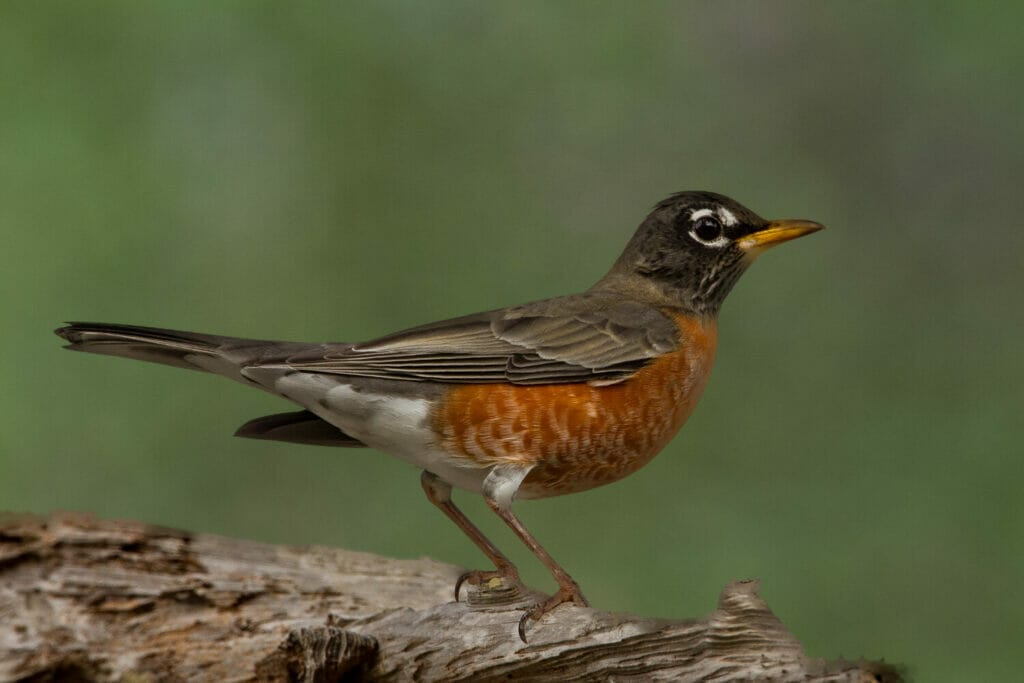
5. Car Bonnet
Car bonnets provide a safe space for robins to sleep in. With that in mind, make sure to check the engine before your morning commute!
Especially during the winter, car bonnets are favored by robins as they provide much-needed warmth and limit contact with predators.
Since the car bonnet is closed and the space inside of it is limited, predators have close to no access to robins when they sleep in there.
Don’t worry; since robins are diurnal, they’ll be out of the car bonnet before you even wake up!
6. Even in Your Pocket!
A known quality of robins is how scrappy they can be. They don’t have a limited diet, they can make their nests out of most things, and they can turn most places into a nice spot for them to sleep.
If you usually hang your coat outside on your porch, you might later find a robin sleeping in its pocket. The unpredictability of the spot makes it perfect for a robin.
Since foxes and cats wouldn’t commonly think of looking inside pockets, you may find a robin sleeping safely and soundly inside one.
Do Robins Sleep in Nests?
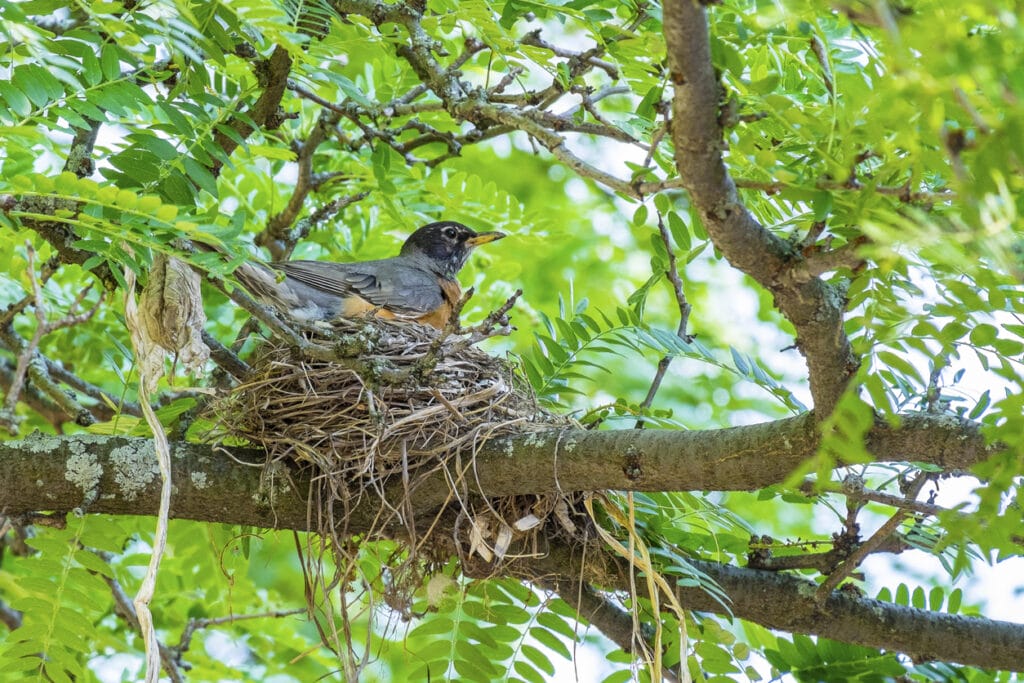
Nesting is when a robin, or any other bird, for that matter, collects moss and dead leaves, then piles them to create a nest on top of a tall tree where it can lay eggs.
When we see a robin doing this, we think that the robin is creating a home for itself to sleep in. This isn’t true, though. Robins don’t need to create a place for themselves to sleep in.
Author Note: Robins often breed from April to July. During this time, you’ll notice their nests hanging high on different trees. A robin will sleep in these nests to mainly protect the eggs in the nest.
Even when sleeping in the nest, the robin is still on high alert in case of any predators drawing near. You’ll also notice another robin sleeping in a bush or branch that’s nearby. That robin will most likely be the mate of the robin sleeping in the nest with the eggs.
With all of that being said, if a robin isn’t going to lay a batch of eggs anytime soon, you’ll rarely find it sleeping in a nest.
Can Robins Sleep in My Garden?

Absolutely! If you want to spice up your garden by attracting robins, it’s very doable. There are just a couple of things you need to add to your garden to attract robins.
Birdfeeders
An important thing to invest in if you want to attract robins is birdfeeders. As the name suggests, birdfeeders are gadgets that provide food to robins in a convenient way.
The good news is that robins aren’t picky eaters! They enjoy dried fruits, berries, and seeds the most.
Birdfeeders will ease the difficult task of searching for food, which is bound to make your garden or backyard a hotspot for robins, as well as other birds.
Bushes
Another thing that will encourage robins to sleep in your garden is dense bushes and shrubs. As we mentioned before, robins prefer leafy areas due to the protection they provide.
So, after eating from the birdfeeders you’ve set up in your garden or backyard, robins can settle into the bushes or shrubs and get some sleep.
Something that will make your garden even more welcoming to robins is not letting cats or foxes enter your garden.
Cats and foxes are dangerous predators to robins, so seeing them in your garden definitely will scare the tiny robins off.
How to Identify a Robin
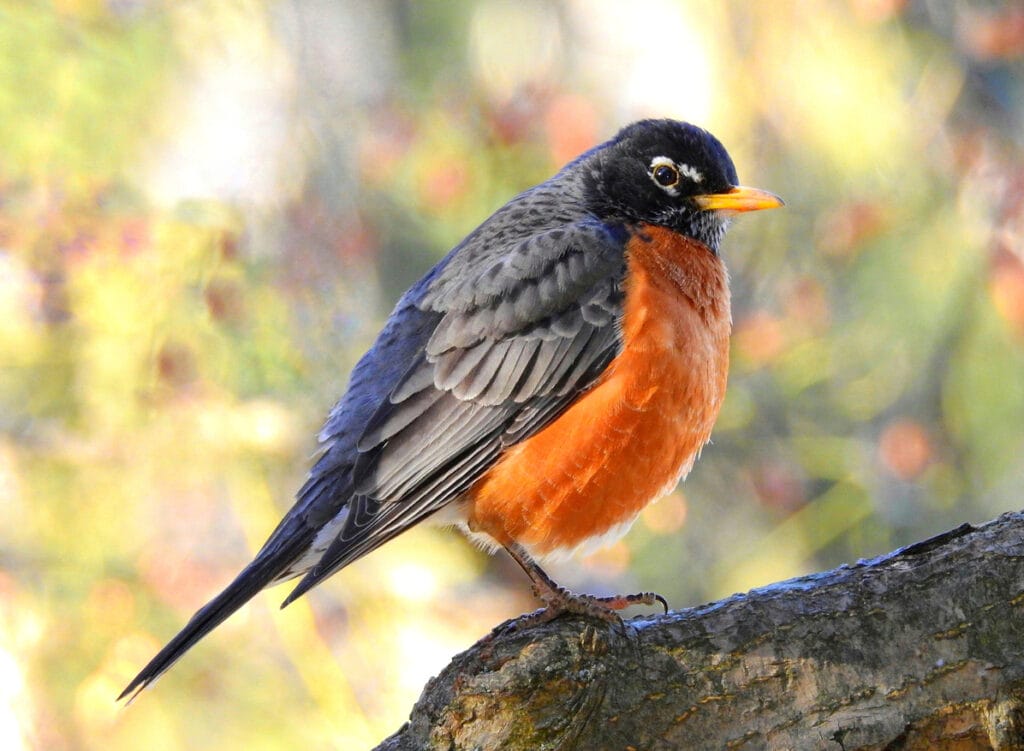
A robin is a pretty distinctive bird. Its wingspan is around 8 inches and it’s commonly friendly around humans. They even have the ability to recognize humans!
Author Note: They have dark brown eyes and are completely pale brown except for their chest and throat. Those areas are bright orange, which makes them very recognizable, especially to predators.
That’s why baby robins are usually completely pale brown; to higher their chances of survival.
Quick Recap
Robins are scrappy birds that are very easy to please, so if you’ve come across a robin that you believe needs care, don’t worry!
As far as the question of where robins sleep, the answer is, they can sleep in most places, from bushes and hedges to trees and log piles to car bonnets and even pockets.
There are just a few important things to remember:
- They prefer sleeping in areas closer to the ground.
- They need secure places, hidden away from predators.
- They need places that provide warmth, especially in the winter.
As long as the area has all three of these qualities, a robin can turn it into an ideal sleeping spot. So, next time you find a robin sleeping in your boots or bonnet, don’t be surprised!
FAQ
Yes, they have been known to gather together in the winter for warmth.
No they hunker down somewhere safe and warm to sleep.
No, American Robins do not mate for life. They just pair up for the season and are independent the rest of the year and so, sleep alone.
